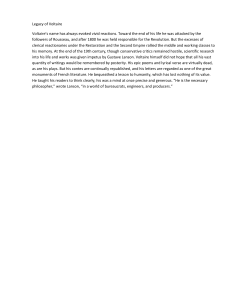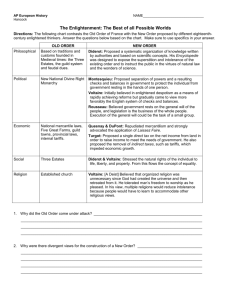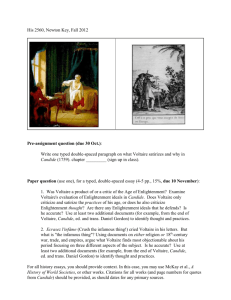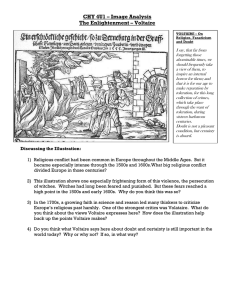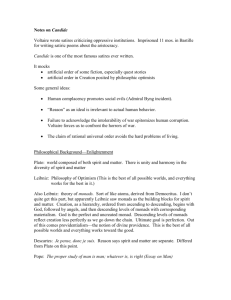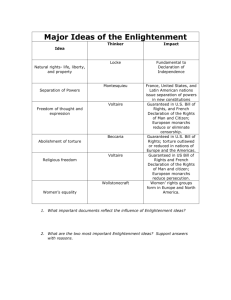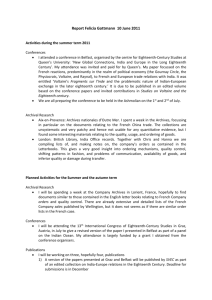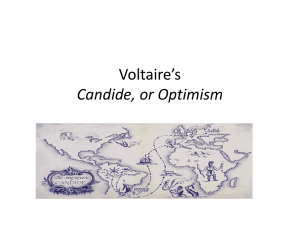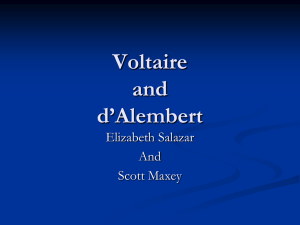Voltaire
advertisement
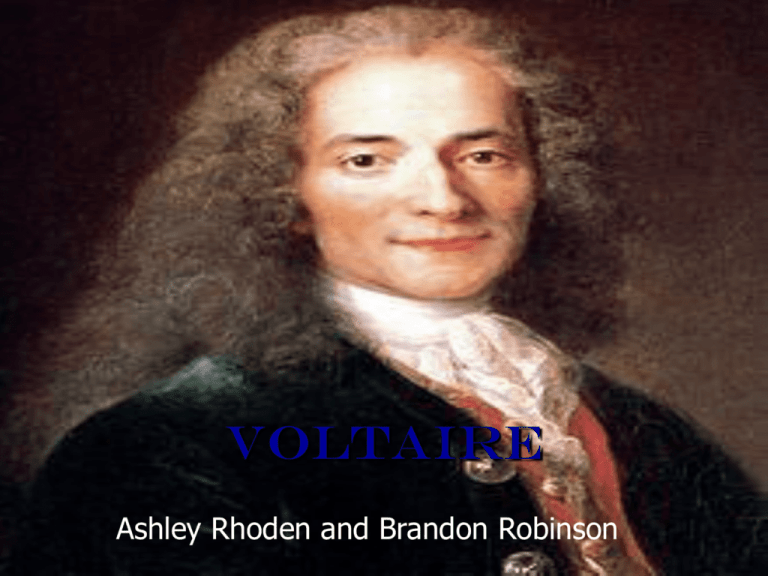
Voltaire Ashley Rhoden and Brandon Robinson Early Life • Francois Marie Arouet (pen • • • • name Voltaire) was born on November 21, 1694 in Paris. the fourth of five children, to a well-to-do public official young Voltaire was shaped by his contacts with the English aristocrat, freethinker,and Jacobite Lord Bolingbroke. prestigious Collège Louis-leGrand in Paris he also acquired a first-class education Father was frustrated that he wanted to become a writer The English Period (1726–1729) • Voltaire's transition into his • • • mature philosophe identity began Voltaire met Bolingbroke, Jonathan Swift, and John Gay knew the other Newtonians (followers of Isaac Newton) and soon became proficient enough in English to write letters and fiction Visited Holland and became close with the journalists there A Change of Direction • Received his father’s inheritance • • • so he never struggled financially in his life fall of 1732, the next stage in his career began and he lived in the royal court of Versailles, a sign that his re-establishment in French society was complete scandal forced him to flee Paris and to establish himself permanently at the Du Châtelet family estate Officials granted Voltaire permission to re-enter Paris in1729, turned from poet to philosophe New Beginnings • Married Emilie du Châtele • Voltaire’s ideas for writing letters about the darker side of things were inspired by Swift’s Gulliver’s Travels • Votaire wrote letters about several aspects of English society; titled Letters On England • Eventually wrote about English • • religion and Parliament Letters On England was published without Voltaire’s consent Ran away to Cirey, England with du Châtele An Influential Name • 1745, named the Royal Historiographer of France, bestowed upon him from Louis XIV and the Swedish King Charles II and accepted invitation to court in Prussia • Essais sur les moeurs et l'esprit des nations (1751) • began to craft an anti-Leibnizian • discourse in the 1740s satire of the President of the Royal Academy of Sciences of Berlin exiled him from Prussia Here to Stay • Settled in Geneva • Became a newly self-conscious philosophes concerned with • • • • political and intellectual change Encyclopédiste was realeased; scandal occurs Dictionnaire philosophique, his book republished his articles from the original Encyclopédie Candide, ou l'Optimisme, text is a serious attack on Leibnizian philosophy Died in 1778 The Enlightenment Period • 18th century cultural changes • • characterized by a loss of faith in religion, science, and democratic republic Enlightenment ideas were strongly influenced by the Constitution of the U.S. Europe-wide movement In Relation to Candide • Dr. Pangloss: absolute Optimism is a mockery of the philosophy of an Enlightenment thinker named Leibniz • El Dorado: Voltaire’s vision of an ideal society. “Each player must accept the cards life deals him or her: but once they are in hand, he or she alone must decide how to play the cards in order to win the game.” -Voltaire
